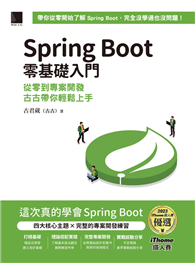Economic growth after World War II was made possible through dramatic increases in the use of material resources and energy. It is apparent that current development patterns followed by industrialized countries are causing serious environmental problems and that they are neither ecologically nor socially sustainable.
In recent years, many Asian developing countries, which have suffered from poverty for decades, are experiencing high rates of economic growth by introducing material-intensive production and consumption patterns. The globalization trends magnify on a global scale the problems associated with current development patterns.
How can we transform existing economic and social systems into more environmentally benign and sustainable ones? This book presents a number of issues that must be considered whn discussing new development patterns, which are environmentally friendly and socially fair. It covers concepts of new development patterns, new energy and water supply, sustainable agriculture, information technology and environment, information disclosure and poverty alleviation.
Audience: This volume will be of interest to those who are involved in innovative interdisciplinary policy studies on environment and development, particularly in Asia and the Pacific region. Also those who are interested in realizing sustainable development through agriculture, water supply, information technology, chemical industry and sustainability issues in China and India
| FindBook |
有 1 項符合
Environment in the 21st Century and New Development Patterns的圖書 |
 |
Environment in the 21st Century and New Development Patterns 作者:Matsushita 出版社:Springer 出版日期:2000-12-31 語言:英文 規格:精裝 / 304頁 / 23.4 x 15.5 x 2 cm / 普通級/ 初版 |
| 圖書館借閱 |
| 國家圖書館 | 全國圖書書目資訊網 | 國立公共資訊圖書館 | 電子書服務平台 | MetaCat 跨館整合查詢 |
| 臺北市立圖書館 | 新北市立圖書館 | 基隆市公共圖書館 | 桃園市立圖書館 | 新竹縣公共圖書館 |
| 苗栗縣立圖書館 | 臺中市立圖書館 | 彰化縣公共圖書館 | 南投縣文化局 | 雲林縣公共圖書館 |
| 嘉義縣圖書館 | 臺南市立圖書館 | 高雄市立圖書館 | 屏東縣公共圖書館 | 宜蘭縣公共圖書館 |
| 花蓮縣文化局 | 臺東縣文化處 |
|
|
圖書介紹 - 資料來源:博客來 評分:
圖書名稱:Environment in the 21st Century and New Development Patterns
內容簡介
|











